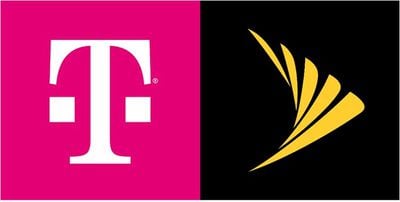Following more than a year of regulatory scrutiny, the U.S. Department of Justice today announced that it has approved the $26 billion merger of T-Mobile and Sprint, although with several conditions attached.

T-Mobile and Sprint will join together as "New T-Mobile" to become a dominant third carrier in the United States alongside Verizon and AT&T. Together, the companies have committed to building out a nationwide 5G network covering 97 percent of the U.S. population within three years and 99 percent within six years.
T-Mobile and Sprint earlier promised that they will not raise prices for three years following the completion of the merger.
Under the terms of the proposed deal, T-Mobile and Sprint must divest a substantial package of assets to Dish Network, including Sprint's prepaid subsidiaries Boost Mobile and Virgin Mobile and some 800MHz spectrum. Dish will also gain access to at least 20,000 cell sites and hundreds of retail locations.
The deal paves the way for Dish to become the fourth nationwide facilities-based wireless carrier in the United States, ensuring a competitive landscape. Dish has announced that it plans to deploy a 5G broadband network capable of serving 70 percent of the U.S. population by June 2023.
FCC chairman Ajit Pai:
I am pleased that the U.S. Department of Justice has reached a settlement with T-Mobile and Sprint. The commitments made to the FCC by T-Mobile and Sprint to deploy a 5G network that would cover 99% of the American people, along with the measures outlined in the Department's consent decree, will advance U.S. leadership in 5G and protect competition.
T-Mobile CEO John Legere:
The T-Mobile and Sprint merger we announced last April will create a bigger and bolder competitor than ever before -- one that will deliver the most transformative 5G network in the country, lower prices, better quality, unmatched value and thousands of jobs, while unlocking an unprecedented $43B net present value in synergies. We are pleased that our previously announced target synergies, profitability and long-term cash generation have not changed.
The merger remains subject to remaining regulatory approvals and certain other customary closing conditions. Additionally, a number of states filed an antitrust lawsuit in U.S. federal court in June to block the proposed transaction; that lawsuit remains on the docket and must be resolved before the merger can go forward.
Regardless, T-Mobile and Sprint expect to receive final federal regulatory approval in the third quarter of 2019 and anticipate that the merger will be permitted to close by the end of the year.






















